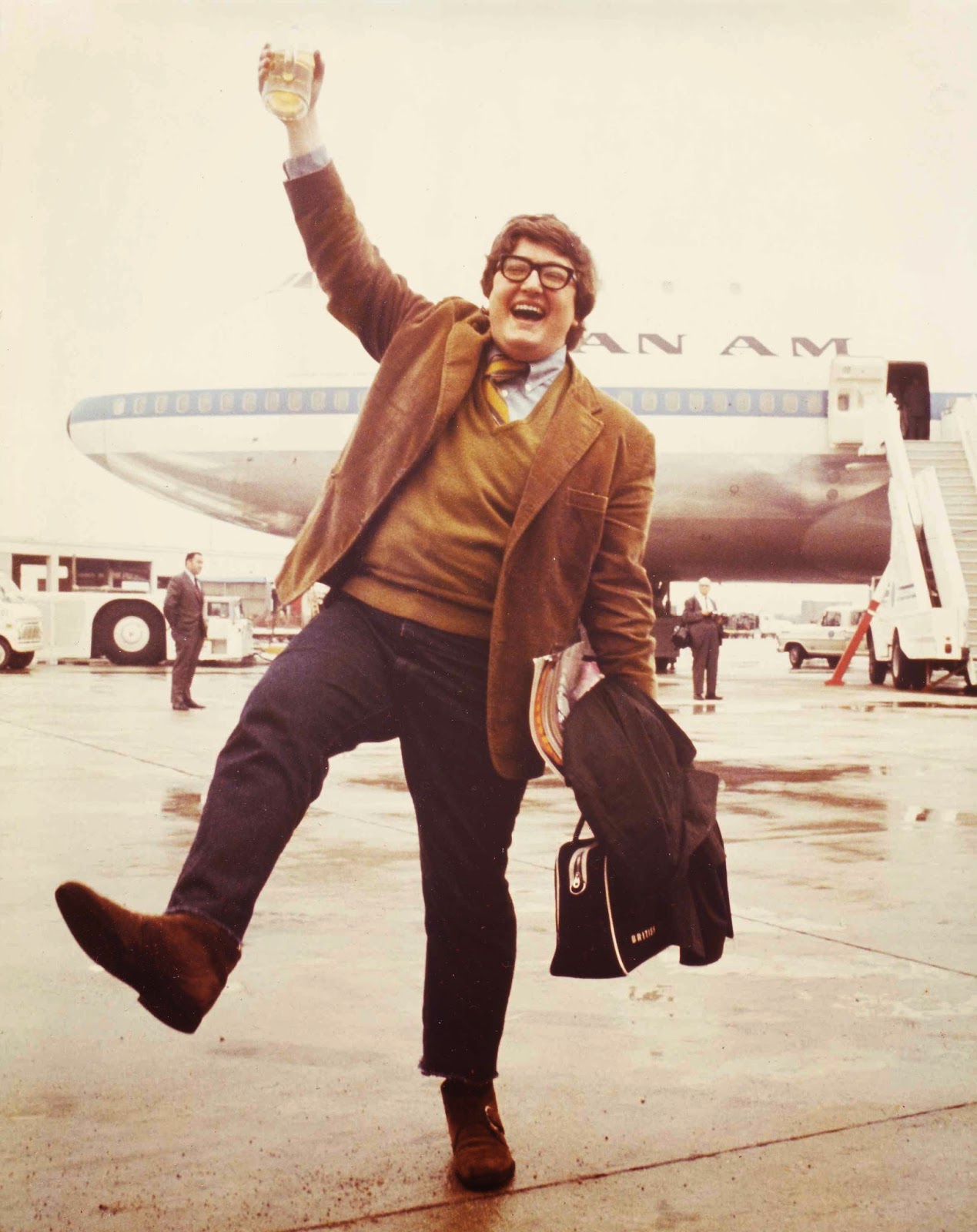In Life Itself, Ebert notes that what he loves about film is it's ability to help us all learn empathy for other people: people in other places and circumstances than ourselves.
Ebert fought for years with his frenemy, Chicago Tribune film critic Gene Siskel. Together they hosted the movie review television shows Sneak Previews and Siskel and Ebert at the Movies. Their egos clashed. They were quite different, they fought for screen time and often bickered endlessly as they taped their shows. Siskel died after surgery from brain cancer in 1999 at age 53, and never told Ebert he was terminally ill or said goodbye.
Ebert's biggest battle was against thyroid and jaw cancer, which required multiple surgeries and left him unable to speak, eat or drink. It was a long journey, and his wife Chaz who he married at age 50 was with him every step of the way. Her family embraced him, despite their differences. (She's black, he was white). They met at AA. They loved each other dearly and she was his advocate and caregiver throughout his illness.
After Ebert won the Pulitzer at the Chicago Sun Times, he received offers to move to newspapers in Washington D.C., Los Angeles and New York. He turned them all down to stay in his hometown. The movie is a kind of love story to Chicago, with some beautiful photography of the city, and snippets about what he loved about his city.
Partially due to what he experienced with the secrecy Gene Siskel's death, Ebert decided to be open and disclose his stuggle with cancer. He still appeared in public even after his disfiguring facial surgery. He was brave and open with his journey. In the movie, he even allowed the director to film him being suctioned by nurses. When they started the movie, Ebert and the director didn't realize that Ebert was in the last few months of his life.
One of the most profound lessons from Ebert's life was the way he adapted to the changes that came with his cancer. He intended to return to television, but when it became impossible he embraced blogging on his website, and blogged until the day before he died. He loved to write. Continuing to write and review films helped keep him alive longer. He realized communicating with the public was still possible. His last blog entry was called, "A Leave of Presence". He was grateful for a great and interesting life.
Director Steve James does a fine, insightful portrait of Ebert, often developed through email exchanges between the film critic and the director about his life, his parents, his career, his foibles. and his personal life. There are a number of important lessons in his life about courage, getting past ego, openness in the face of life threatening illness, adapting to health changes, finding true love late in life, and being loyal to your hometown.
Thumbs up for the brave Roger Ebert, and the film Life Itself. Sometimes it's the things that we don't expect in life, and how we choose to respond to them, that define us.




